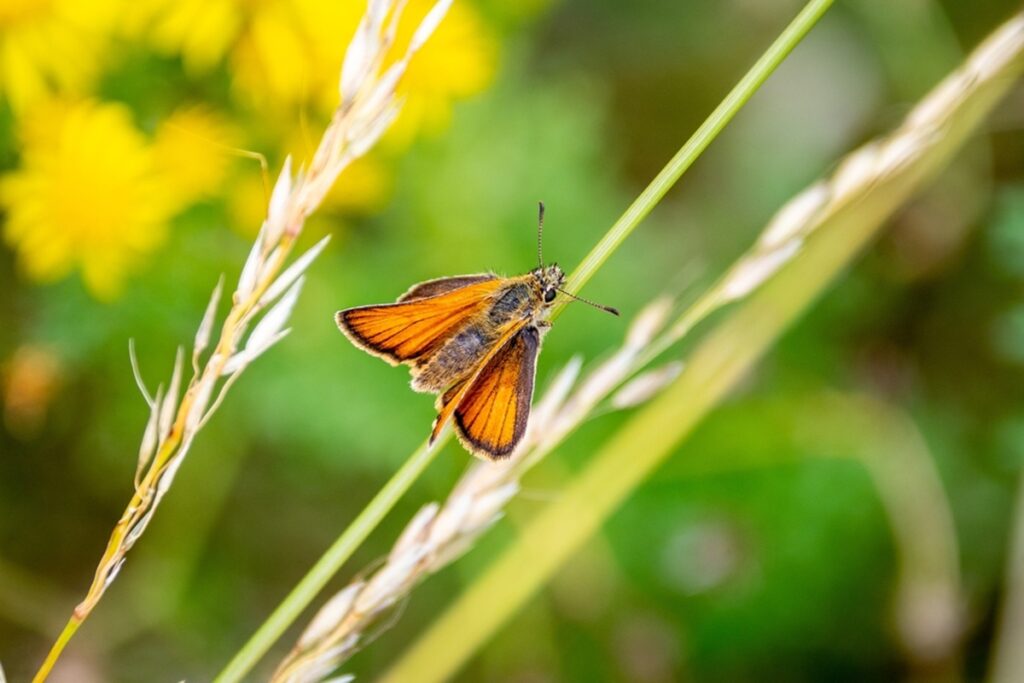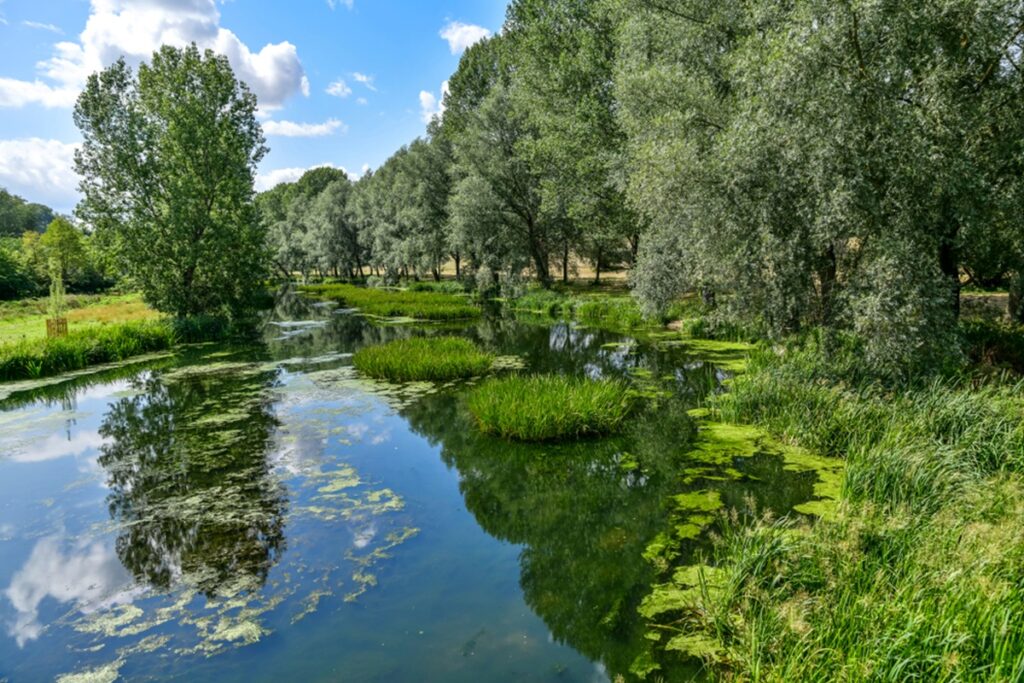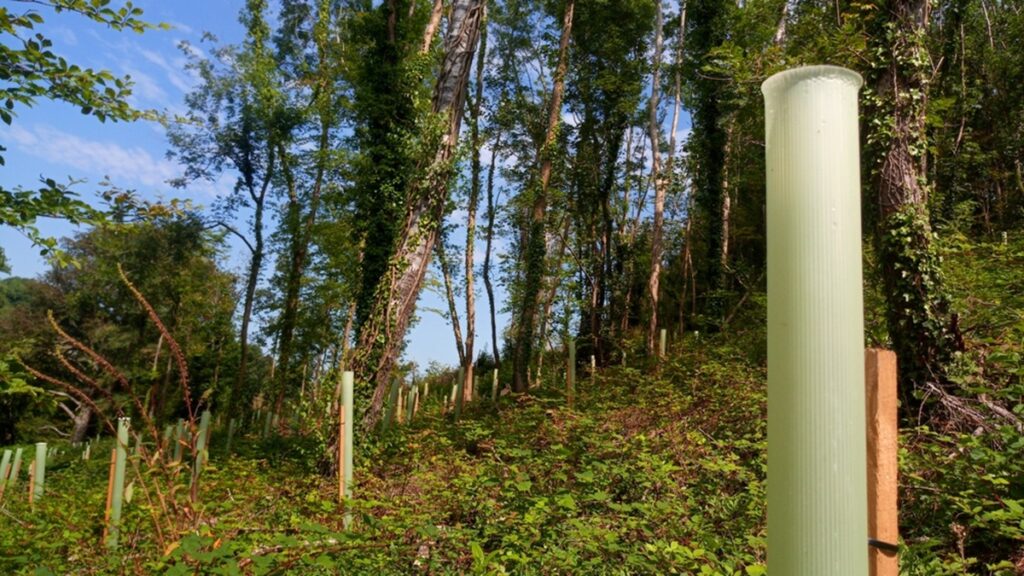Biodiversity Net Gain Assessment must form part of Pre Development Plans
The introduction of biodiversity net gain (BNG) into UK law through the Environment Act 2021 marked a major shift in the way development projects are approached. The principle is straightforward but ambitious: leave biodiversity in a measurably better state than it was pre development, ensuring long-term environmental improvements across the country.
For almost all planning applications, aside from a few exemptions, meeting biodiversity net gain legislation is now a mandatory requirement of the planning process.
In practice, this means that developers in Bristol, in South West England, must work with ecological professionals to calculate the biodiversity value of a development site before and after development. By comparing these two measurements, any shortfall can be identified and addressed, with at least 10% net gain in biodiversity required.
This can be achieved through on-site measures, off-site habitat creation, or a combination of both, but it must be clearly evidenced and approved by the local planning authority to achieve a successful planning application.
Since February 2024, meeting biodiversity net gain bng requirements has been a legal obligation rather than an optional policy, with local councils applying it alongside other planning considerations. As well as being part of the Environment Act, biodiversity net gain is embedded in the National Planning Policy Framework (NPPF) and supported by guidance from central government, Natural England, local planning authorities, Local Nature Recovery Strategies and conservation bodies.
Developers in Bristol should therefore treat biodiversity net gain as a fundamental component of planning policy from the earliest stage and an essential element of applications for planning permission to Bristol City Council.

Ecological Features and Opportunities in Bristol
Bristol is a vibrant, growing city with a strong reputation for environmental leadership – even named European Green Capital in 2015. However, as an urban area with pockets of sensitive habitats, balancing development with ecological protection is a challenge.
The city is home to a wide range of protected species, including bats, otters, badgers, slow worms, peregrine falcons and rare invertebrates. Many of these are concentrated along the River Avon corridor, woodland edges, grassland reserves, and in Bristol’s parks and nature reserves.
Habitat Enhancement and Nature Conservation
Bristol City Council, together with the West of England Combined Authority, local wildlife trusts, and many local planning authorities, is proactive in enhancing green spaces, improving ecological connectivity and mitigating climate change impacts.
This means that biodiversity net gain plans in Bristol and the south west are likely to be scrutinised carefully by the city council to ensure they deliver measurable and lasting benefits.
Biodiversity net gain regulations require developers to focus on preventing habitat loss on a project area, enhancing biodiversity via new habitat schemes, restoring degraded sites, and maintaining wildlife corridors.

Preparing a Biodiversity Net Gain Report in Bristol
Pre development, before planning permission can be granted, developers must submit a biodiversity net gain bng assessment prepared by a qualified ecologist. The process begins with a baseline biodiversity assessment of the project area, where the current habitats, land management and ecological value of the site are recorded and scored using the government’s Biodiversity Metric tool. This includes identifying habitat types, measuring their condition and extent, and noting any legally protected species present.
BNG Assessments
Next, the ecologist will work with the developer to forecast the site’s biodiversity value after development. This projected figure considers proposed landscaping, habitat creation, and management plans. If the comparison between pre- and post-development scores shows a shortfall, mitigation steps must be designed to bridge the gap and meet the net gain target of at least 10 percent biodiversity gain.

Environmental Strategies for delivering Biodiversity Net Gain
In most cases, priority will be given to achieve biodiversity net gain on-site through habitat enhancement, planting schemes, wetland creation, or green infrastructure features such as living roofs and wildlife-friendly drainage systems.
Where on-site delivery is not feasible, as a last resort, developers can secure off-site biodiversity units from registered habitat banks. These biodiversity units represent measurable habitat improvements delivered elsewhere in Bristol or, if necessary, further afield: conservation covenants will need to be drawn up to ensure the site is maintained correctly for the required 30 year period.

The Role of the BNG Plan
A completed biodiversity net gain report will clearly set out how biodiversity net gain will be achieved both during and after construction on a proposed development site. Relevant information may include details on creating new habitats, a habitat management and monitoring plan, timetables for implementation, and a commitment to maintain the improvements for at least 30 years – the statutory minimum.
Bristol’s local planning authority will expect the bng report to follow the mitigation hierarchy: avoid habitat damage wherever possible, minimise unavoidable impacts or habitat loss to the natural environment, and compensate for residual losses. Ecologists will also need to show how the measures align with local biodiversity priorities, including Bristol’s Local Nature Recovery Strategy and the West of England Joint Green Infrastructure Strategy.

Meeting Biodiversity Net Gain Requirements with Professional Support
Our ecology consultancy provides expert biodiversity net gain plans across the south west and the wider UK. We have extensive experience in biodiversity net gain assessments and environmental issues, ensuring our reports meet the standards required by Bristol City Council and other local planning authorities.
We work with developers on major developments, small sites, commercial businesses, landscape architects and private homeowners.
From the first site visit to final submission of a full planning application, we manage the entire process including: baseline habitat surveys; Biodiversity Metric calculations; habitat creation and enhancement advice and long-term management plans to ensure that projects can proceed and secure planning consent.
Off-site BNG Delivery
Where off-site biodiversity net gain units are required, we can guide you through the purchasing process and ensure all legal and reporting requirements are met. Our team understands the ecological priorities in this part of the south west and north Somerset, local wildlife sites and green infrastructure policies, meaning we create biodiversity net gain strategies that are both compliant with the Environment Act 2021 and locally relevant to the natural environment.
Whether your planning projects involve environmental issues such as different habitat types or water quality concerns, and whether you are planning new developments or residential developments on small sites or major developments, our biodiversity net gain assessment process can help you to comply with planning rules set by local authorities and legislation. We can also provide advice on how to maintain habitats, along with post development advice.

Request a Free Quote for Biodiversity Net Gain Plans in Bristol
If your development project in Bristol requires a biodiversity net gain assessment, we can provide a free, no-obligation quote tailored to your site and planning requirements. We work closely with developers, architects, and planners to integrate biodiversity into project design from the start, helping you avoid costly delays and last-minute design changes to planning permission applications.
For further information about biodiversity net gain plans in Bristol, contact us today for a free quote. You can also get in touch via the telephone number on this page.
If you decide to accept our quote, we will arrange a site visit at a time to suit you and provide advice on the next steps. Following the site assessment, our ecological consultants will prepare a clear, compliant plan to help your application though the planning process, enabling the granting of planning permission.